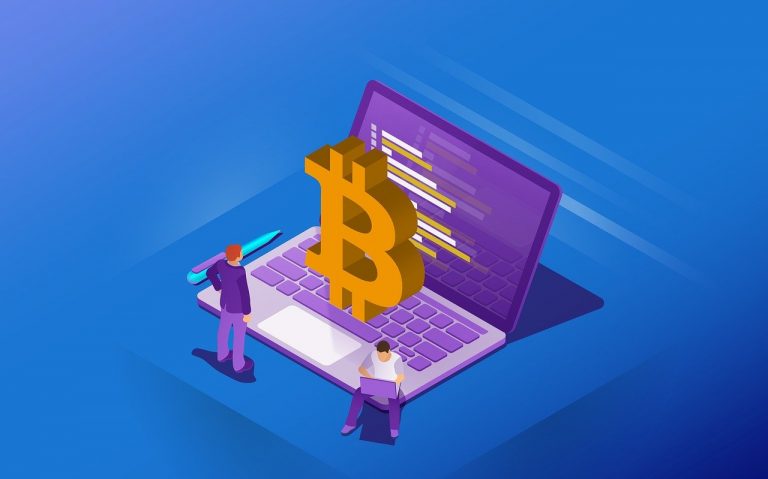As the cryptocurrency industry matures, so do the laws that govern it. One of the most important developments in recent years is the widespread adoption of KYC (Know Your Customer) and AML (Anti-Money Laundering) procedures.

Once considered a controversial topic in the decentralized world of crypto, these regulations are now standard practice for most centralized platforms—and their impact is only growing.
So, what exactly are KYC and AML, why do they matter, and how do they affect you as a crypto user in 2025? Let’s break it down.
What Is KYC in Crypto?
KYC refers to the process by which financial institutions and crypto platforms verify the identity of their users. It typically involves collecting personal information such as:
-
Full name
-
Date of birth
-
Government-issued ID (passport, driver’s license)
-
Proof of address (utility bill, bank statement)
-
Sometimes a selfie or facial verification
The goal of KYC is to confirm that users are who they say they are, helping prevent fraud, money laundering, and terrorist financing.
In the crypto world, KYC is now required by most centralized exchanges like Binance, Coinbase, Kraken, and Bybit. Without completing KYC, users are usually restricted from depositing, withdrawing, or trading large amounts.
What Is AML in Crypto?
AML stands for Anti-Money Laundering. It refers to laws and procedures designed to stop criminals from disguising illegally obtained funds as legitimate assets.
AML in the crypto space includes:
-
Monitoring user transactions for suspicious activity
-
Reporting large or unusual transfers to authorities
-
Flagging and freezing accounts suspected of illegal use
-
Screening users against sanctions and watchlists
AML is not just limited to exchanges—DeFi platforms, wallet providers, and even NFT marketplaces are increasingly adopting AML standards to avoid regulatory scrutiny.
Why Are KYC and AML Important in Crypto?
In the early days of crypto, the lack of oversight attracted bad actors. Hacks, scams, and illicit transactions flourished in the anonymity. Regulators responded by demanding stronger controls.
KYC and AML aim to:
-
Make the crypto ecosystem safer for users and investors
-
Prevent the use of crypto for criminal activities
-
Build trust with governments and traditional financial institutions
-
Encourage mainstream adoption by adding legitimacy
Without KYC and AML, crypto platforms would be unable to operate legally in many countries.
How KYC/AML Affects Users
If you’re trading crypto in 2025, chances are you’ve already gone through KYC at least once. Here’s what you need to know about how it impacts your experience:
1. Access to Services
Most centralized exchanges now require full KYC verification to unlock features like fiat deposits, high-volume trading, staking, or access to launchpads.
Some platforms offer “lite” or basic accounts with low trading limits for users who want limited access without full verification.
2. Privacy Concerns
Many in the crypto community value privacy. KYC procedures mean handing over sensitive documents to private companies. This raises concerns about:
-
Data breaches or leaks
-
Government surveillance
-
Centralization of personal data
To address this, some platforms are improving transparency and using decentralized identity (DID) systems or zero-knowledge proofs to reduce privacy risks.
3. Transaction Monitoring
Even after KYC, your transactions may be monitored for compliance. Sudden large transfers, mixing services, or interaction with flagged wallets may trigger review.
This could result in:
-
Delays in withdrawals
-
Freezing of accounts
-
Reporting to regulatory bodies
To avoid issues, always use clean, verifiable sources of funds.
4. Tax Reporting
KYC and AML tools are also used to track user activity for tax compliance. In many countries, exchanges are required to report your gains and losses to tax authorities.
That means:
-
Your trades are no longer private
-
You may receive automated tax forms
-
Failure to report accurately can lead to penalties
It’s essential to track your transactions and understand your local tax obligations.
DeFi and Non-KYC Alternatives
One of the reasons DeFi (Decentralized Finance) has become popular is its permissionless nature. Most DeFi protocols, like Uniswap or Aave, don’t require KYC since they’re governed by code, not corporations.
However, regulators are beginning to target this sector too. In 2025:
-
Some front-end websites are restricting access to users from blacklisted regions
-
Developers may be held responsible for compliance violations
-
DeFi protocols are experimenting with “KYC-lite” models or verified wallet badges
While DeFi remains more anonymous than centralized platforms, expect increased scrutiny moving forward.
Legal and Ethical Considerations
If you try to avoid KYC/AML requirements by using unregulated platforms, there are risks:
-
You may be violating national laws
-
Your funds could be frozen or confiscated
-
You could unknowingly interact with illicit assets or entities
That’s why many crypto veterans recommend using compliant platforms—especially if you’re handling large sums, receiving income, or trading frequently.
How to Stay Safe with KYC Platforms
If you’re concerned about your data or safety, here are a few tips:
-
Use only reputable exchanges and platforms with a strong security history.
-
Check how your data will be stored and shared before submitting documents.
-
Enable two-factor authentication (2FA) and use strong passwords to protect your account.
-
Keep copies of your documents and records of your KYC process.
-
Report any suspicious behavior or phishing attempts posing as KYC requests.
The Future of KYC and AML in Crypto
Looking ahead, expect more innovation in compliance. Some trends already underway in 2025 include:
-
Decentralized KYC solutions, where users control their identity data
-
Zero-knowledge verification, which proves you meet requirements without revealing personal info
-
On-chain reputation systems that build trust without full KYC
-
Global standards, such as those from the FATF (Financial Action Task Force), creating consistency across countries
These solutions aim to balance regulation with the core values of decentralization and user sovereignty.
KYC and AML have become unavoidable parts of the crypto ecosystem. While they may seem like a hassle to some, they are essential for reducing fraud, promoting trust, and enabling broader adoption of digital assets.
As a crypto user in 2025, understanding these systems—and how they affect your rights, privacy, and responsibilities—is critical. Whether you’re a casual investor or a full-time trader, staying informed about compliance requirements will help you use crypto safely and legally.



